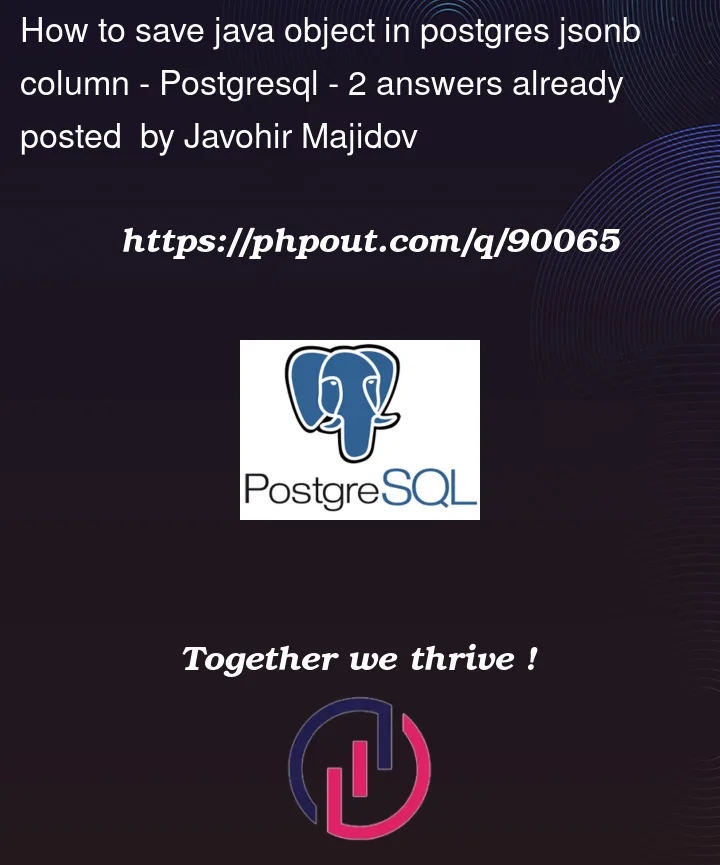Here is my code:
I need to save java object value as jsonb in database (r2dbc).
@Getter
@Setter
@ToString
@NoArgsConstructor
@AllArgsConstructor
@Table("scoring")
public class ScoringModel extends BaseModel {
@Column("client_id")
@SerializedName(value = "clientId", alternate = {"client_id"})
private String clientId;
//othres
@Column("languages")
@SerializedName(value = "languages", alternate = {"languages"})
private String languages;
@SerializedName(value = "response", alternate = {"response"})
//Need to save as JsonB
private Object response;
}
Please help me resolve the issue




2
Answers
You need to implement
ReadingConverterandWritingConverterand then register them inR2dbcCustomConversionsin configuration.Converters itself should produce JSONs.
If you using Postgres, there are two approaches you can use to map to Postgres JSON/JSONB fields.
Jsontype directly in Java entity class.Jsonvia registering custom converters.The first one is simple and stupid.
Declare a
jsondb type field, eg.Declare the
Jsontype field in your entity class.For the second the solution, similarly
Declare
json/jsonbdb type in the schema.sql.Declare the field type as your custom type.eg.
Declare a
R2dbcCustomConversionsbean.The example codes is here.
Finally verify it with a
@DataR2dbcTesttest.